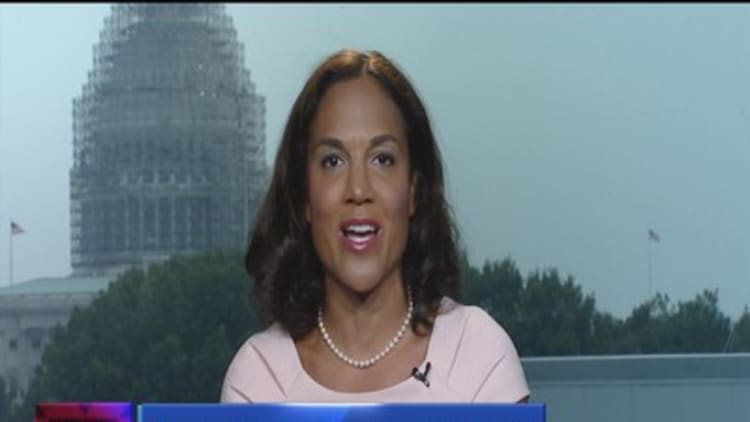
While Saudi King Salman bin Abdul-Aziz Al Saud Salman met with President Barack Obama on Friday to discuss the Iran deal, the country's finance minister also assured investors in a forum that Saudi Arabia will weather the decline in oil prices, said Helima Croft, RBC Capital Markets' chief commodities strategist.
Croft said in the forum, which she attended, the message was "that they had dealt with low oil prices before; they can deal with it again and also importantly that the prices will eventually rebound. They won't be in this environment forever."
Saudi Arabia remains the world's largest oil exporter, and it has committed to pumping crude freely despite a recent price decline.
However, while the kingdom keeps emphasizing that demand will ultimately push oil prices higher, Croft said that isn't necessarily a given.
"What if we don't get that demand-driven recovery into the $70s next year? Do they re-evaluate their policy on production?" she said Friday in an interview with CNBC's "Closing Bell."
Salman met Obama at the White House on Friday to seek more support in countering Iran. It is the king's first visit to the United States since ascending to the throne in January 2015 and comes after the U.S. agreed to a nuclear deal with Iran in July.
Croft said that while everyone is being publicly polite, there are tensions behind the scenes.
"The Saudis are very, very alarmed at the idea of Iran coming back in from the cold, being able to have a new financial windfall that they can put behind their foreign policy objectives in the region. So President Obama is going to have to do a lot of work to reassure the Saudis that he has their interests at heart."
Meanwhile, U.S. Treasury Secretary Jack Lew told CNBC Thursday that none of the sanctions against Iran will be lifted until the country completes all the steps it has to take. That means it could be a while before Iran's oil hits the global market. Traders have been concerned about the impact of further supply on crude prices.
Croft thinks that Iran's supply likely won't come online until the end of the second quarter of 2016 because of "the types of modifications the Iranians are going to have to do to their facilities to be compliant with the deal."
She also doesn't think the output will be 1 million barrels a day, as has been suggested, and instead will fall somewhere between 375,000 to 500,000 barrels per day.
—CNBC's Matthew Belvedere and Reuters contributed to this report.





